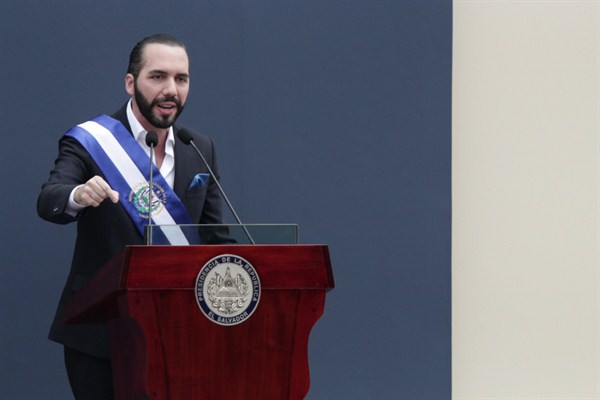“CICIES! CICIES!” the crowds chanted at the inauguration of El Salvador’s new president, Nayib Bukele, on June 1. Salvadorans had a message for the members of the Legislative Assembly, too, whom they booed. “Give us back what you have stolen!”
Implementing “CICIES”—an international commission against impunity in El Salvador—was the key campaign promise that helped the 37-year-old Bukele win the presidency in February. More than half the population believes that Bukele’s administration will fight corruption within the Salvadoran government, according to polls.
The name CICIES is directly inspired by its counterpart next door, the International Commission Against Impunity in Guatemala, or CICIG, an anti-corruption body backed by the United Nations that has worked closely with Guatemala’s attorney general to investigate cases of corruption at the highest levels of the Guatemalan government. Investigations by CICIG, largely financed by the United States and the European Union, led to the resignation and later jailing of then-President Otto Perez Molina in 2015 over a huge tax fraud scheme that also implicated his vice president. But the commission has since been derailed by Perez Molina’s successor, Jimmy Morales, who came into office with his own anti-corruption pledges but then changed his tune when CICIG started investigating him.

